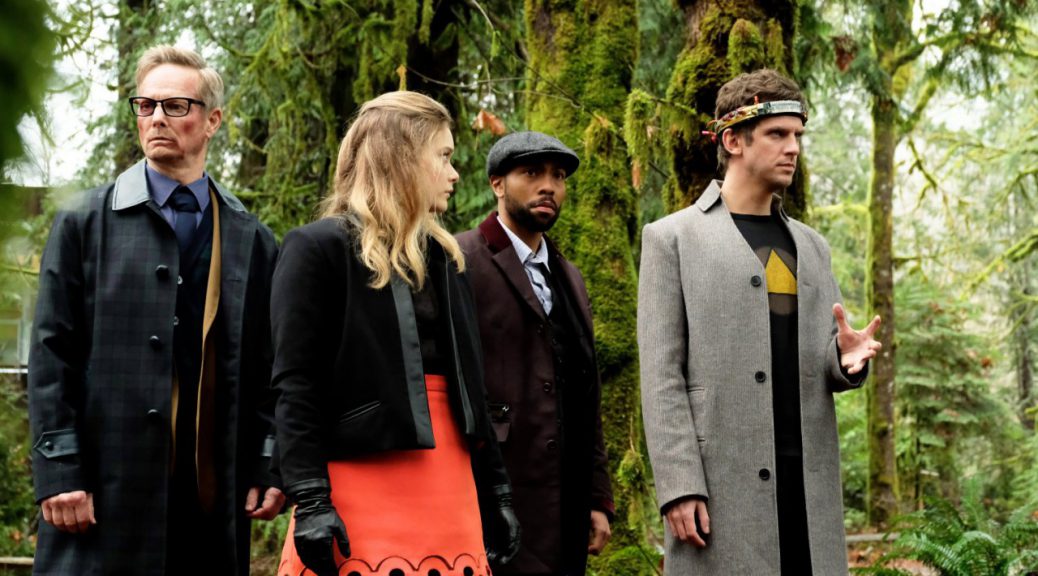It would have been easy to lean on the success of the psychedelic visuals and give a straightforward comic book tale, but that’s not what “Legion” is about. Its devotion to character and complex emotions is handled with grace and talent by Hawley, and the sheer audacity of its narrative is enough to get any viewer hooked.
Over the past two decades, superhero narratives have become synonymous with blockbuster filmmaking. Since “X-Men” blew the door open in 2000, the theaters have been packed with superpowered special effects extravaganzas on a yearly basis. Since “X-Men’s” release, there have been more than 70 large budget comic book releases, with almost 15 more coming over the next three years. The genre is at its peak. With the uptick in popularity comes a more pressing matter: Audience disinterest.
As with any other narrow genre, for example westerns or noir films, the evolution of genre narratives follow a very similar path. The first few years establish the basic tropes, like the origin story and the tragedy that follows, ultimate good versus ultimate evil, and an ultra destructive climax. Films stick fairly close to this framework for a while, until the genre hits market saturation and is forced to evolve or die. Noir is an example of a genre that died — though admittedly it was brought back to life in the mid-70s — and the western is one that evolved.
The films become both self-aware and unrestricted, now free to develop unconventional narratives and operate both outside of the boundaries while simultaneously bringing attention to them. This year’s “Logan” is a perfect example of that evolution, dealing with the morality and truthfulness of superhero stories while also being completely aware of its origins stemming back to the original “X-Men.” These evolutions lead to not only better cinema, but better stories as well.
This evolution is why FX’s “Legion” is one of the best superhero narratives ever put to film.
Told over the course of eight breathtaking episodes, “Legion” tells the story of David Haller (Dan Stevens), a young man in a mental hospital for schizophrenic delusions and hallucinations. He spends his days in therapy and complaining about the world with his close friend Lenny Busker (Aubrey Plaza) until he meets the girl of his dreams in Sydney “Syd” Barrett (Rachel Keller). Syd turns out to be a part of an agency of mutants who are looking for David due to his unnaturally strong powers, of which even David is unaware — He thinks he’s crazy.
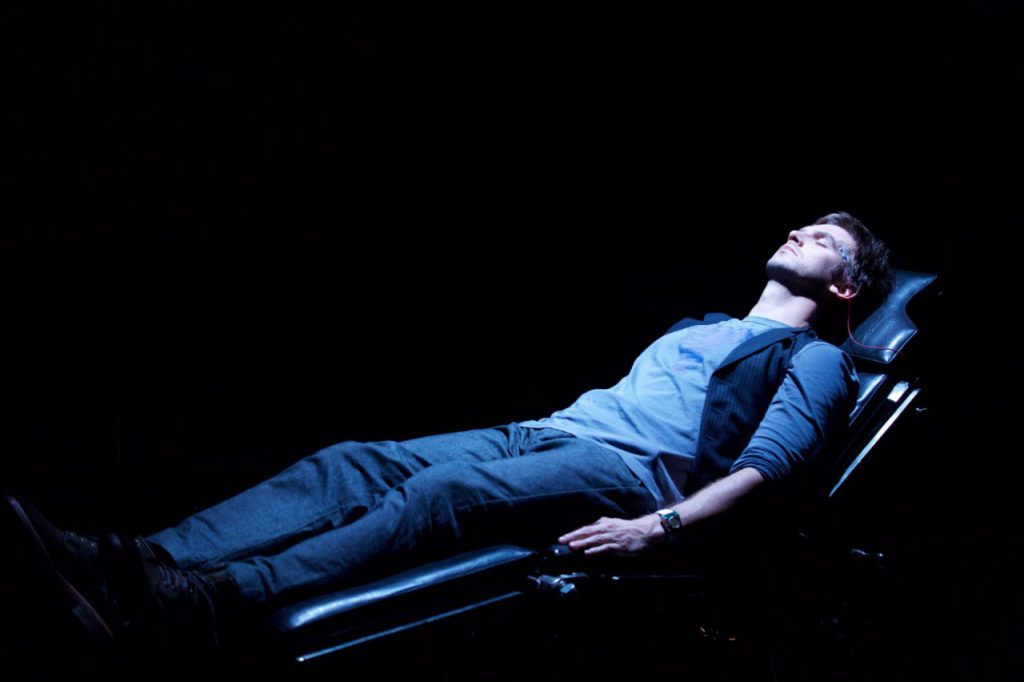
Showrunner Noah Hawley, hot off of his acclaimed run on FX’s “Fargo,” went into the show hoping to craft a new take on the superhero narrative, and he nails it.
Superhero stories are nearly ubiquitously concerned with two things: superpowers and action. That’s where “Legion” separates itself from the rest of the pack. There is plenty of action, and superpowers left and right, but none of it is the focus. “Legion” is less a show about superheroes and more about people — individuals whose lives have been changed by forces outside of their control. Each character has their own quirks and foibles that make them relatable, approachable and more than anything, human.
David, whose comic book alias is the titular Legion, isn’t exactly your typical hero. His life consists of questions with no answers and tragedies with no cause. His schizophrenia diagnosis was the first truth he ever came across, but even that ends up being nothing more than a mistake. That confusion comes out throughout the series, thanks to Stevens’ absolutely magnificent performance. He prepped for the role by talking to mental health patients and physicians to truly understand his character, and it helped. Viewers feel his confusion, discomfort, anguish. H is an inherently optimistic character with desires. Part of this is Hawley’s fault, since he, along with the rest of the cast, intentionally hid large portions of the story as they filmed, so he would be unsure of what was actually happening. It was an odd tactic that ultimately paid off.
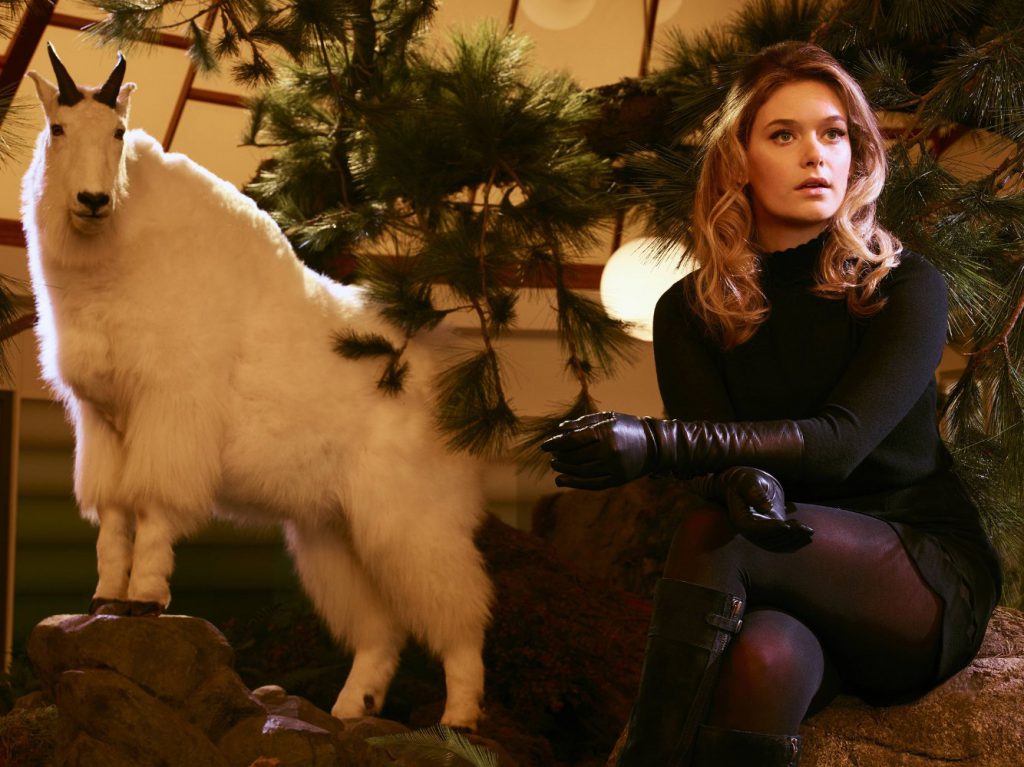
Syd, as the other lead, is just as interesting. Keller’s breakout role in season two of “Fargo” was one of overt intensity and violence, a brooding villain in every aspect. Here, she plays the exact opposite, a subdued and introspective love interest for David. Syd’s power involves her being able to switch places with anyone she touches, trading her mind for theirs for a short period of time. As such, she’s not exactly a huge fan of touching, though David manages to change that once he discovers a way to bring her into his mind.
What’s interesting about these two is the love story is not a slow burn like most shows and films. Within the first episode, “Legion” establishes their connection and makes their relationship one foundation of the story. The two play off each other’s weaknesses and help one another overcome emotional problems, which is a nice change of pace from the usual “woman as reward” stereotype.
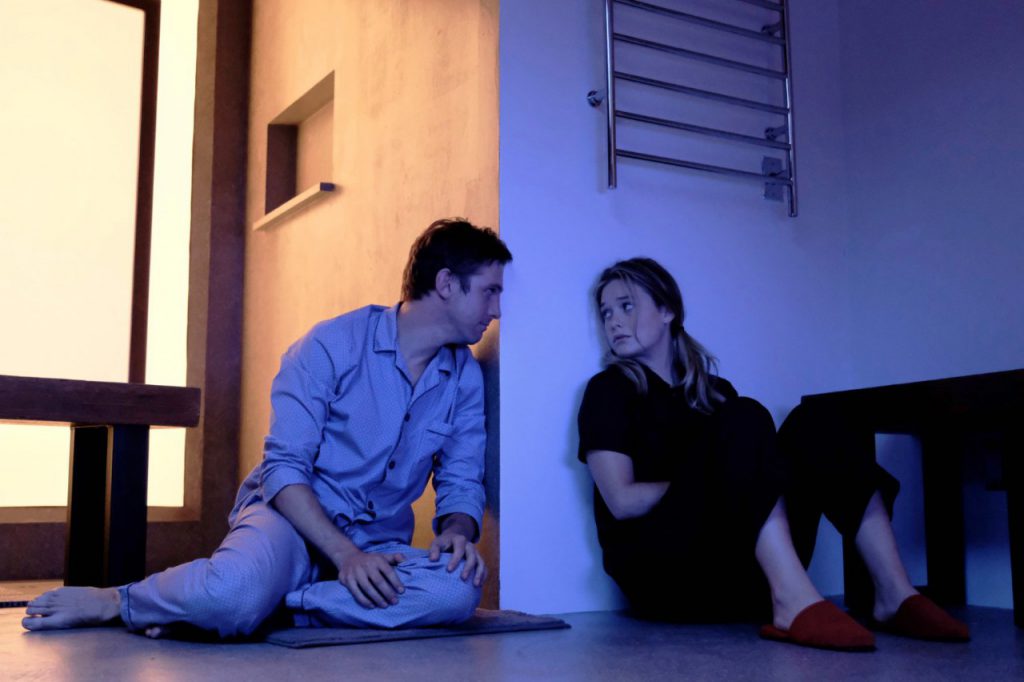
The real star of the show, however, is Plaza’s Lenny. The character actually dies in the first episode, before becoming a part of David’s constantly growing mental hellscape. Lenny, in fact, was originally written as a middle-aged man, so her dialogue is often crass and off kilter, but Plaza pulls it off with vigor. She channels a bit of her trademark “Parks and Recreation” humor. The varied ways her character is used let her shine in an unconventional role. Revealing too much about her role in the plot would be spoiling some of the biggest plot twists of the season, but I will say her arc is delightful.

Superhero shows, like “The Flash” and “Arrow,” typically follow the same framework. Each season has one big villain, which drives the season along, and each episode features a smaller baddie for the hero to fight. Essentially, they become episodic monster-of-the-week shows, which are entertaining of course, but they don’t draw much emotion from the audience.
“Legion” is completely different. It is essentially an eight-hour film, with a slowly boiling story that draws on the strengths of its characterization and mystery. It could be described as a character study, if not for the constant superpowers and trippy fight sequences.
There are traces of superhero tropes all over the place, but that’s never the focus. There’s a major villain lurking in the shadows, a government organization intending to use David as a weapon, big set pieces and fight scenes and plenty of superpowered antics. Yet, the show does something very television specific: it never shows its hand.
“Legion” is a show focused more on the internal than the external, a narrative built around confusion and distress. The conflict ramps up incrementally, as David slowly understands his origins and what is truly going on. Equal parts psychological thriller and mystery, the show thrives off themes of self-identification and reflection. Entire episodes take place within David’s memories and his mind, with the penultimate episode involving the entire cast trapped inside the maze that is David’s brain. It’s constantly surprising and evolving, with a tacit approach that lets the viewers in on its secrets, but hiding the truth behind layers of intrigue and complications. That internal focus reverberates down to the action itself. It takes a psychological approach to telepathic combat, lucid internal battles fought through dialogue and psychedelic disorder.
When I say lucid, I mean it literally. “Legion” is an absolute beauty to watch, with a visual style so good it hurts. The closest way I can describe it would be as a neo-futuristic version of the 1960s, or the TV equivalent of a Pink Floyd album after a bit too much LSD. It sheds all of the bombast and overdone CGI synonymous with the superhero genre in favor of a unique aesthetic that coats every inch of the frame in ultramodern psychedelic simplicity. Everything from the costume design, to the architecture and the hairstyles are quintessentially 60s, with a nice 21st century vibe layered on top.
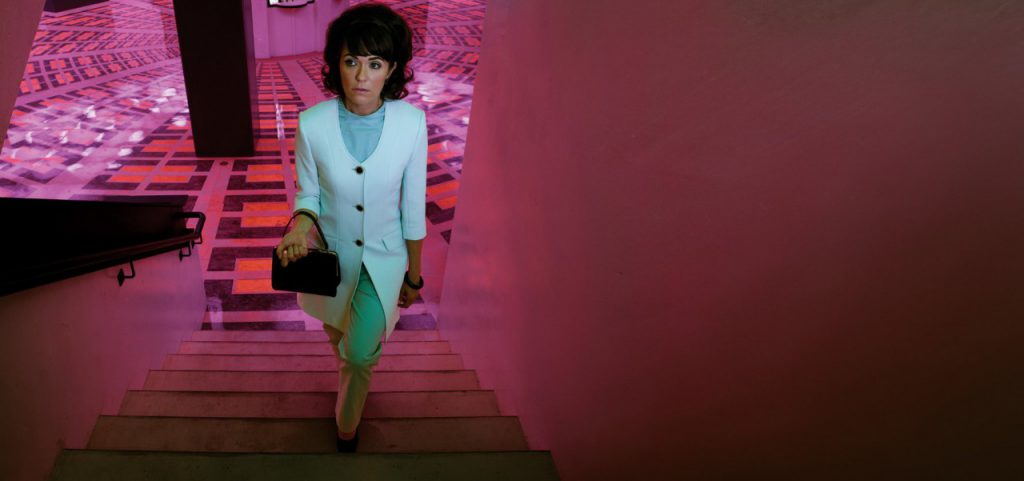
And that’s saying nothing for the filmmaking itself. Every episode is shot with the delicacy of a sculptor and the panache of an auteur ahead of his time. Inside David’s mind, the shots feel claustrophobic and ominous, smothered in discomfort. Out in the real world, fluid pans and exquisite framing give every image a life of its own. It is a master work of cinematic style and flair, with some of the finest lighting and color work television has ever seen. By paying close attention to every minor detail, Hawley and company build an ethereal environment that is as surreal as it is comforting.
It would have been easy to lean on the success of the visuals and give a straightforward comic book tale, but that’s not what “Legion” is about. Its devotion to character and complex emotions is handled with grace and talent by Hawley, and the sheer audacity of its narrative is enough to get any viewer hooked. It shakes the genre down to its foundation and restructures it into something new. “Legion” succeeds in every way possible, easily becoming a masterpiece of the superhero storytelling.
One can only hope the second season will live up to expectations.
